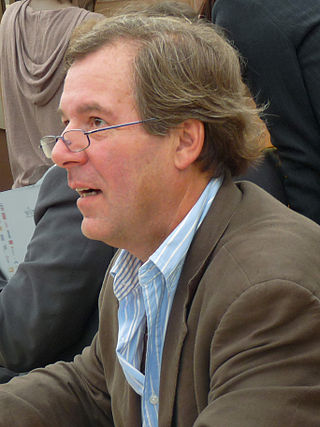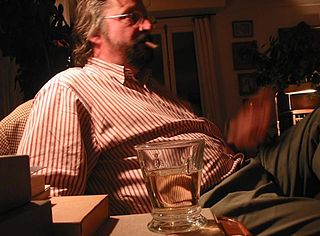
The Prix Théophraste-Renaudot or Prix Renaudot is a French literary award.

Frédéric Vitoux is a French writer and journalist.

Catherine Clément is a French philosopher, novelist, feminist, and literary critic, born in Boulogne-Billancourt. She received a degree in philosophy from the École Normale Supérieure, and studied under its faculty Claude Lévi-Strauss and Jacques Lacan, working in the fields of anthropology and psychoanalysis. A member of the school of French feminism and écriture féminine, she has published books with Hélène Cixous and Julia Kristeva. She has also made contributions to musicology; her Opera, or the Undoing of Women (1979) is notable for its emphasis on the representation of women in opera.
The Prix Maurice Genevoix is an annual French literary award made in honor of its namesake Maurice Genevoix (1890–1980). It is intended to recognize a French literary work which, by its topic or style, honors the memory and work of Maurice Genevoix. The prize was founded in 1985 in the city of Garches under the initiative of mayor Yves Bodin, who was a family friend of Genevoix. In 2004 the award was officially established at the Académie française as a "Grand Prix", meaning the winner receives a silver-gilt medal and variable cash amount, thus increasing its prestige and importance since 2004.

Georges-Emmanuel Clancier was a French poet, novelist, and journalist. He won the Prix Goncourt (poetry), the Grand Prize of the Académie française, and the grand prize of the Société des gens de lettres.
The Prix Méditerranée is a French literary award. It was created in 1984 in Perpignan by the Mediterranean Centre of Literature (CML) to promote cultural interaction among the numerous countries surrounding the Mediterranean Sea. Two awards are handed out every year, the Prix Méditerranée itself and the Prix Méditerranée Étranger. The latter is given to a writer from the Mediterranean basin whose original work has been translated into French.
Célia Bertin was a French writer, journalist, biographer, French Resistance fighter and winner of the 1953 Prix Renaudot. She was awarded as an Officer of the Legion of Honour, and an Officer of Ordre des Arts et des Lettres.

Jean-Noël Pancrazi is a French author.
The Prix Jean-Freustié is a French literary prize created in 1987 by Christiane Teurlay-Freustié, second wife of writer and publisher Jean Freustie (1914–1983) to which it pays tribute, and his friends Nicole and Frédéric Vitoux as well as writer Bernard Frank. It rewards a French-speaking writer for a prose work: a novel, short story, autobiography, biography or essay. The prize is awarded annually.
The Prix Richelieu is a French literary award that rewards a journalist who "testified by the quality of his own language, his concern to defend the French language". It is awarded annually, under the sponsorship of the association Défense de la langue française and the Éditions Larousse.
Éric Ollivier, pseudonym for Yves Duparc, was a French writer, screenwriter and journalist, laureate of several French literary awards.

Jérôme Garcin is a French journalist and writer. He heads the cultural section of the Nouvel Observateur, produces and hosts the radio programme Le Masque et la Plume on France Inter, and is a member of the reading committee of the Comédie-Française.

Jean-Baptiste Harang is a French writer and journalist.

Michel Crépu is a French writer and literary critic as well as the editor-in-chief of Nouvelle Revue française since 2015.
Jean-Claude Brisville was a French writer, playwright, novelist and author for children. A screenwriter, in particular for the film Beaumarchais, l'insolent, he obtained the Grand Prix du théâtre of the Académie française in 1989 for all his body of work.
Michel Schneider was a French writer, musicologist, énarque, senior official, and psychoanalyst. He was the father of journalist and writer Vanessa Schneider and of François Schneider, a history teacher. He was also the maternal uncle of actress Maria Schneider.
François-Olivier Rousseau is a French journalist and writer.
Philippe Vilain is a French man of letters, writer, essayist, doctor of modern literature of the University of Paris III: Sorbonne Nouvelle.
The Prix du livre incorrect is a French literary prize. It was created in 2006 by Jean Sévillia.
The Prix Montaigne de Bordeaux is a literary prize created in 2003 by the Bordeaux Wine Academy and the city of Bordeaux. It is attributed to a work that represents the values of humanism, tolerance and liberty that were dear to writer and philosopher Michel de Montaigne, who was Bordeaux's mayor from 1581 to 1585.








